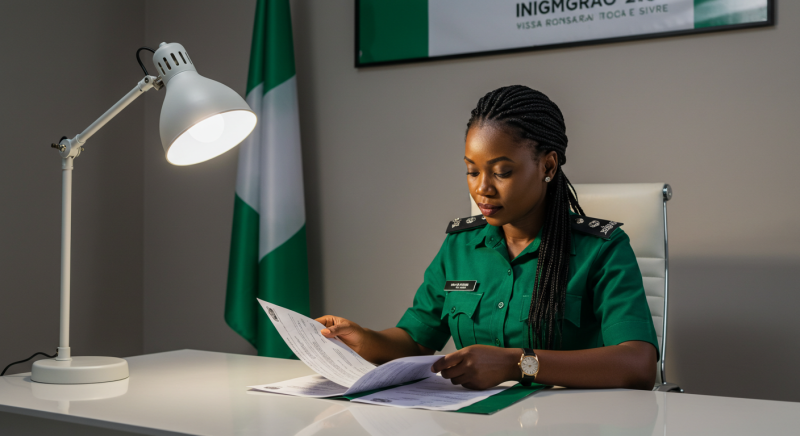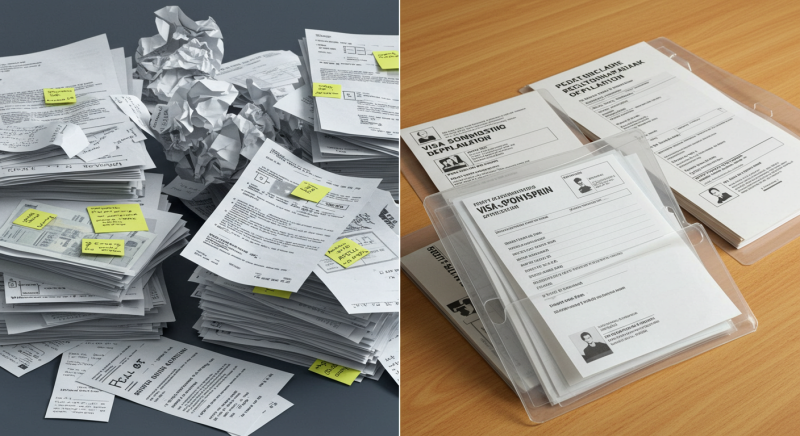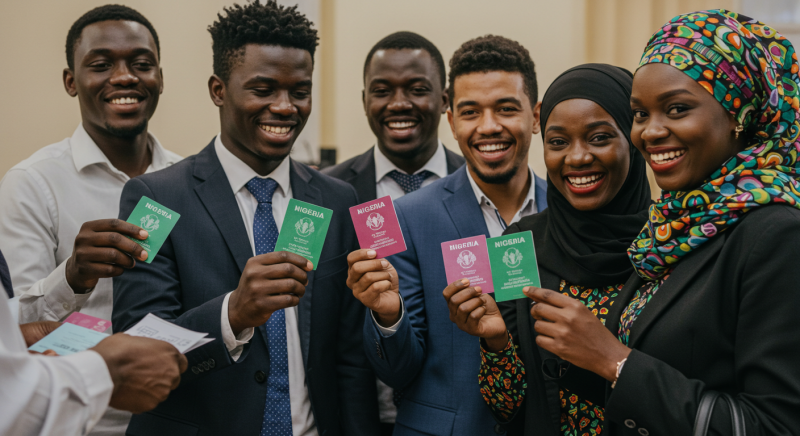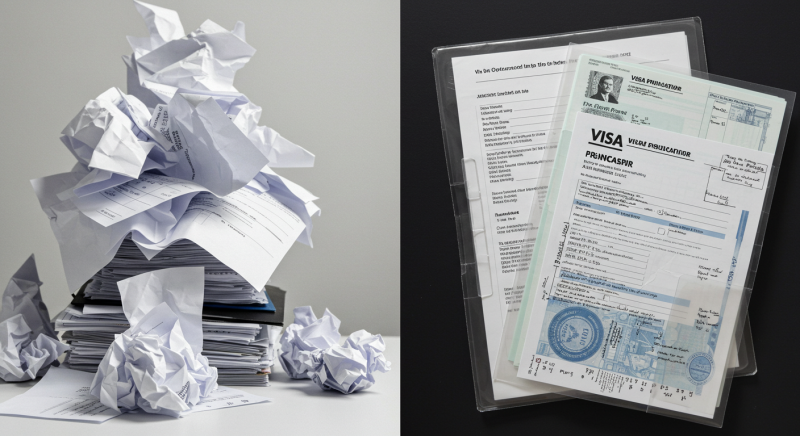Key Takeaways:
- Understanding the different types of visas requiring sponsorship in Nigeria
- Documentation needed for successful visa sponsorship applications
- Financial obligations for sponsors of foreign nationals
- Critical timelines and processing periods for visa sponsorship
- Common reasons for visa sponsorship rejections and how to avoid them
The Gateway to Nigerian Opportunities
Navigating the complex world of visa sponsorship requirements in Nigeria can feel like trying to find your way through Lagos traffic during rush hour – overwhelming, unpredictable, and filled with unwritten rules. For thousands of foreign nationals hoping to work, invest, or reunite with family in Nigeria, understanding these requirements isn’t just about paperwork; it’s about unlocking life-changing opportunities in Africa’s largest economy. Whether you’re an expatriate seeking employment, a company looking to bring in foreign talent, or a Nigerian citizen hoping to sponsor a loved one, mastering the visa sponsorship requirements will determine whether doors open or remain firmly shut.

Understanding Nigeria’s Visa Sponsorship System
The Nigerian Immigration Service (NIS) oversees all visa sponsorship requirements for foreigners entering the country. Unlike some immigration systems that primarily focus on the applicant, Nigeria places significant responsibility on the sponsor – be it an individual, company, or organization within Nigeria. This sponsor-centric approach means that understanding the obligations of sponsorship is crucial for both the sponsor and the visa applicant.
According to recent data from the Nigerian Immigration Service, approximately 150,000 foreigners require visa sponsorship to enter Nigeria annually for various purposes. The sponsorship process serves as both a vetting mechanism and a way to ensure foreign nationals have legitimate reasons for entry and sufficient support during their stay [Source: https://immigration.gov.ng/visa-requirements/].
Types of Visas Requiring Sponsorship in Nigeria
Different visa categories have varying visa sponsorship requirements based on the purpose and duration of the intended stay:
Work Visa/Subject to Regularization (STR) Visa
This is perhaps the most common visa requiring formal sponsorship. For foreign nationals seeking employment in Nigeria, the employing company must provide sponsorship letters, incorporate specific guarantees, and demonstrate compliance with local content policies. Recent statistics from the Federal Ministry of Interior show that work visa applications increased by 22% in 2023, reflecting Nigeria’s growing attraction as a destination for expatriate professionals [Source: https://interior.gov.ng/immigration-statistics/].
Business Visa
While general business visas may not require full sponsorship, extended business activities often necessitate formal visa sponsorship requirements to be met. Business sponsors must provide evidence of legitimate commercial relationships and often financial guarantees.
Temporary Work Permit (TWP)
For short-term specialized work, the TWP has specific visa sponsorship requirements that focus on the limited duration and specialized nature of the work. Companies must justify why a Nigerian cannot perform the role and provide clear timelines.
Residence Permit
Perhaps having the most stringent visa sponsorship requirements, residence permits allow longer stays and require sponsors to provide comprehensive documentation about accommodation, financial stability, and purpose of extended residence.
Essential Documentation for Visa Sponsors
Meeting the visa sponsorship requirements means providing numerous documents that establish identity, relationship, and capability to sponsor. The Nigerian Immigration Service requires:
For Individual Sponsors:
- Formal invitation/sponsorship letter with notarized signature
- Proof of Nigerian citizenship or legal residency (passport, national ID, etc.)
- Bank statements showing financial capability (usually covering at least 6 months)
- Tax clearance certificate for the past three years
- Proof of accommodation for the sponsored individual
For Corporate Sponsors:
- Company registration documents with Corporate Affairs Commission
- Tax clearance certificate
- Formal sponsorship letter on company letterhead
- Evidence of business operations in Nigeria
- Expatriate quota approval (for work visas)
According to immigration consultancy data, approximately 35% of visa sponsorship rejections stem from incomplete documentation, highlighting the importance of meticulous preparation [Source: https://www.nigerianembassy.org/visa-information/].
Financial Obligations in Meeting Visa Sponsorship Requirements
The financial aspect of visa sponsorship requirements cannot be overstated. Sponsors must demonstrate sufficient resources to support the foreign national during their stay in Nigeria.
Corporate sponsors for work visas must show:
- Ability to pay the statutory minimum salary
- Health insurance coverage
- Repatriation guarantees
Individual sponsors must typically demonstrate:
- Income at least three times the national minimum wage
- Stable employment or business ownership
- Sufficient savings to cover emergency situations
The Nigerian Immigration Service introduced more stringent financial visa sponsorship requirements in 2022, requiring sponsors to maintain minimum bank balances proportionate to the number of individuals being sponsored [Source: https://pwcnigeria.com/immigration-updates/].
Processing Timelines for Visa Sponsorship Applications
Understanding the timeline for visa sponsorship requirements processing helps manage expectations and plan accordingly:
- Standard processing: 5-15 working days
- Express processing: 2-3 working days (additional fees apply)
- Subject to Regularization conversions: 30-60 days
- Residence permit sponsorship: 15-30 days
However, actual processing times often exceed these official timelines due to bureaucratic challenges. Recent surveys by expatriate forums indicate that nearly 60% of applicants experience delays beyond the stated processing periods, making early application essential [Source: https://www.expatinfodesk.com/nigeria/].
Common Challenges in Meeting Visa Sponsorship Requirements

Several recurring issues complicate the visa sponsorship requirements process:
Documentation Inconsistencies
Minor discrepancies between documents often lead to rejection. Names must appear identically across all paperwork, dates must align, and information must be consistently presented.
Quota Limitations for Corporate Sponsors
Companies face strict limitations on how many foreign workers they can sponsor based on their size, industry sector, and Nigerian employment numbers. Many companies find these quotas restrictive, especially in specialized technical fields.
Changing Regulations
Nigeria’s visa sponsorship requirements undergo periodic revisions, sometimes with limited notice. Maintaining current knowledge of requirements presents an ongoing challenge for sponsors and applicants alike.
Security Clearance Delays
Enhanced security protocols have extended the background check process for certain nationalities and professions, adding unpredictable waiting periods to the sponsorship process.
How to Successfully Navigate Visa Sponsorship Requirements
Achieving success with Nigeria’s visa sponsorship requirements requires strategic planning:
For Sponsors:
Begin the process at least 3-4 months before the intended entry date. Maintain meticulous record-keeping and ensure all financial documents clearly demonstrate capability. Establish relationships with immigration consultants or legal advisors specializing in Nigerian immigration law.
For Applicants:
Work closely with your Nigerian sponsor to ensure all information is consistent across applications. Prepare for possible interviews by understanding the purpose and context of your visit. Keep original documentation accessible throughout the application process.
According to immigration practitioners, applications that include comprehensive cover letters explaining the purpose of sponsorship and establishing clear relationships between sponsors and applicants have approximately 25% higher approval rates.
Recent Changes to Visa Sponsorship Requirements
The Nigerian government implemented several significant changes to visa sponsorship requirements in recent years:
- Introduction of the Visa on Arrival program for business travelers (still requiring pre-approval)
- Enhanced security clearance processes for technology sector workers
- Digital submission requirements for supporting documentation
- Increased financial thresholds for sponsors
- New biometric requirements for certain visa categories
These changes reflect Nigeria’s dual objectives of encouraging legitimate foreign investment while strengthening security protocols around immigration.

Conclusion: Mastering Nigeria’s Visa Sponsorship Process
Understanding and navigating Nigeria’s visa sponsorship requirements demands patience, attention to detail, and thorough preparation. While the process may seem daunting, successful sponsorship opens doors to one of Africa’s most dynamic economies and culturally rich nations. By carefully following the outlined requirements, maintaining open communication with Nigerian immigration authorities, and allowing sufficient time for processing, both sponsors and visa applicants can achieve successful outcomes.
Remember that visa sponsorship requirements exist not to discourage legitimate travel but to ensure that foreign nationals entering Nigeria have genuine purposes and adequate support during their stay. With proper preparation and understanding, the sponsorship process becomes a manageable step toward new opportunities in Nigeria.
Frequently Asked Questions
Who can legally sponsor a foreign national for a Nigerian visa?
Nigerian citizens, permanent residents, registered businesses, educational institutions, and government agencies can act as sponsors, provided they meet the financial and legal requirements established by the Nigerian Immigration Service.
How long does visa sponsorship approval typically take?
Standard processing ranges from 5-15 working days, though work visas with sponsorship often take 3-4 weeks due to additional security and employment verifications. Express processing options are available for urgent cases.
Can a sponsorship be revoked after a visa is issued?
Yes, sponsors can withdraw their sponsorship if circumstances change. Additionally, the Nigerian Immigration Service may revoke visas if they discover misrepresentation in the sponsorship application or if the sponsor fails to meet ongoing obligations.
What are the financial requirements for individual sponsors?
Individual sponsors typically need to demonstrate income at least three times the national minimum wage, stable employment history, and bank statements showing consistent funds sufficient to support the sponsored person throughout their stay.
Are there limits to how many foreign nationals a company can sponsor?
Yes, companies operate under expatriate quotas determined by their size, industry sector, and ratio of Nigerian employees. These quotas limit the number of foreign workers a company can legally sponsor for work visas.
READ MORE
10 UK Truck Driving Jobs for People Migrating to the UK: Visa Sponsorship, Salaries & How to Apply
